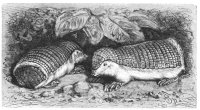 The Argentine author Fogwill's Los pichiciegos is an astonishing tale derived from the Falklands/Malvinas conflict. The book is all the more remarkable as it was written between June 11-17, 1982, i.e. as the war itself was ending and so while the war of words still followed a rigid ideological dichotomy, and before the combatants themselves had had a chance to tell of their experiences.
The Argentine author Fogwill's Los pichiciegos is an astonishing tale derived from the Falklands/Malvinas conflict. The book is all the more remarkable as it was written between June 11-17, 1982, i.e. as the war itself was ending and so while the war of words still followed a rigid ideological dichotomy, and before the combatants themselves had had a chance to tell of their experiences.Yet the novel is rooted in a sense of the physical experience of the Falklands war, in all its brute materiality. And it refuses not only the rhetorical dichotomization that assigns legitimacy to one side or another, but also the very notion of sides.
The "pichiciegos" of the title are a group of Argentine deserters who have established a subterranean settlement (a bunker, a series of passages and chimneys) somewhere in no man's land. They are, effectively, maroons who commerce with both sides (British and Argentine) as they seek the kerosene, sugar, cigarettes, and so on that they need to survive. Yet they also maintain their distance, digging firmly into the slush and mud of the islands' desolate landscape. Theirs is a wary Exodus from the claims and counter-claims that they hear on the radio, and a becoming-immanent to the rough terrain amid the minefields and bomb craters.
 Pichiciegos are also a species of Argentine armadillo, armour-coated, blind burrowing creatures active only at night. One of the group tells the others about this animal, how they live and how they are hunted. What most takes their fancy is the way in which, to dislodge them from their burrows, a hunter is forced sometimes to grab them by the tail and stick a finger up their arse. At the shock (or perhaps the pleasure) of the penetration, the pichiciegos lose all resistance and can easily be extracted. Likewise, the deserters are aware that at any moment they may be fucked in the arse by either the Argentines or the Brits.
Pichiciegos are also a species of Argentine armadillo, armour-coated, blind burrowing creatures active only at night. One of the group tells the others about this animal, how they live and how they are hunted. What most takes their fancy is the way in which, to dislodge them from their burrows, a hunter is forced sometimes to grab them by the tail and stick a finger up their arse. At the shock (or perhaps the pleasure) of the penetration, the pichiciegos lose all resistance and can easily be extracted. Likewise, the deserters are aware that at any moment they may be fucked in the arse by either the Argentines or the Brits.Still, they stockpile supplies and are prepared to wait the war out. They have yerba mate, cigarettes, liquor, food... everything except chemical toilets, which means they either have to brave the subzero elements to shit outside, or plug up their systems with anti-diahrreal drugs. Yet in their nervous limbo between the two opposing camps, in the fear that is both omnipresent backdrop and specific response to the Harriers, the helicopters, and the other machinery of war, even or perhaps especially here they become themselves as never before.
It's as though it were only in this fearful Exodus that the virtual qualities constituting both individuals and group could be actualized: "It's that fear releases the instinct that everyone carries within him" (103).
In the end, however, this rebel colony--neither one thing nor the other, surplus and so almost invisible to the friend/enemy distinction of war and politics--is almost inevitably extinguished. Poisoned by the carbon monoxide emitted by their own stove once the snow silently blocks the chimney, the pichiciegos are entombed, to become literally part of the landscape, a buried relic of other ways of living the war.
But the maroon experience is also buried by less natural forces: by the Argentine generals' declaration that the war continues, if by other means; and even by the politicians' promises of elections and choice, as though there were anything to choose. Fogwill already anticipates the slogan of Argentina's 2001 uprising: "No... I wouldn't vote for any of them. Let them all go off [¡que se vayan todos!] back to the whore of a mother who bore them!" (55).
One survivor alone remains, an un-named pichiciego who is gradually revealed to be recounting his story to a shadowy narrator who seems to be half-author, half-psychologist. A narrator who may or may not believe the strange tales that he is told (of a hovering Harrier with its engines off, of nuns in the snow, of the "Great Attraction" as a fleet of warplanes disappears into the ether), and who certainly, his informant insists, doesn't understand, cannot understand.
But at least he records, he records the pichiciego's words so that they are not entirely lost to a future whose first glimmering possibilities they may perhaps predict.
Links: Beatriz Sarlo on Los pichiciegos; Julio Schvartzman, "Un lugar bajo el mundo"; and "Fogwill, en pose de combate", a recent interview by Alan Pauls for Clarín.
No comments:
Post a Comment